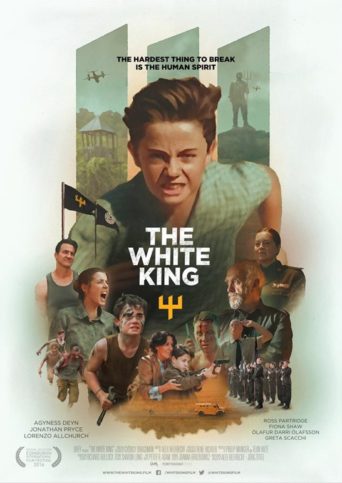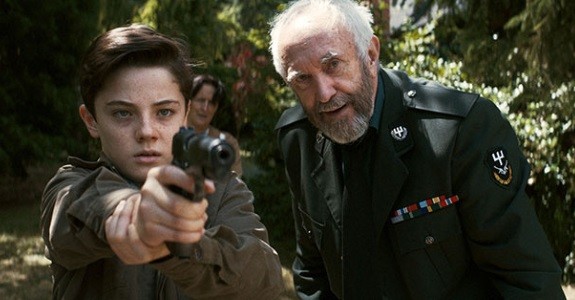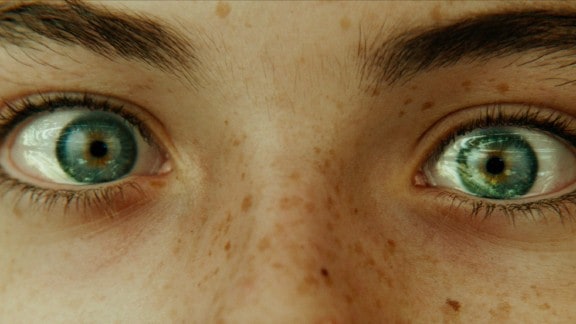 The art work for the 2016 British sci-fi drama, The White King, and its narrative focusing on a 12-year-old struggling to come of age under a brutal dictatorship (think an extreme form of Totalitarianism) are enough to pique anyone’s interest and raise expectations of a thrilling Coming-of-Age drama. Sadly, the film never achieves its potential and hardly succeeds in anything. In fact, it’s vague, ideological propaganda not much better than the one it tries to portray.
The art work for the 2016 British sci-fi drama, The White King, and its narrative focusing on a 12-year-old struggling to come of age under a brutal dictatorship (think an extreme form of Totalitarianism) are enough to pique anyone’s interest and raise expectations of a thrilling Coming-of-Age drama. Sadly, the film never achieves its potential and hardly succeeds in anything. In fact, it’s vague, ideological propaganda not much better than the one it tries to portray.
The White King is based on a novel by György Dragomán and, while I haven’t read it, I’m positive that the unconvincing storytelling in the film is caused by an incompetent adaptation. If that is the case, I hope that whoever works on the adaptation of The Shadow Children series by Margaret Peterson Haddix will do a much better job.
Usually, when reviewing a movie, I focus on its positive aspects to convince people as to why they should invest their time in watching it. With The White Kid, except for some good scenes saved by the close-up shots of Djata’s eyes (the main protagonist) and the overall capable acting of the actor who portrays him, Lorenzo Allchurch, there is little to mention on the positive side. However, when describing why the film doesn’t work, the list of reasons is rather large.

Starting with its restricted, limited and a bit forced sets – like in a bad theatrical play one is constantly aware that the filmmakers are trying hard to portray a dystopian world, much like the one of George Orwell’s 1984. Maybe it was budget limitations that restricted the choice of locations, but even that can’t excuse the forced exposition. Yet we do understand the restrictive nature of the world in which the 12-year-old Djata is to grow up, but not much else.

Another issue with the film is the clear lack of focus in both narration and characterization. Based upon the film’s advertising poster, one keeps hoping that the story will turn into a dynamic exploration of the way a totalitarian regime affects its young protagonist and his struggle against it, but that never happens. As a result, one never really cares truthfully for the hero’s fate – an empathy achieved in the similarly themed Macedonian production by Ivo Trajkov, Golemata Voda.
Unfortunately, the ending is every bit as weak as the rest of the film. With all of the above being considered, I can’t recommend this film. If anti-totalitarian doctrine intrigues you, more original and authentic stories are to be found in movies from East European countries such as Bulgaria, Romania and Serbia. Somehow Western directors miss the whole point, as was also the case with Paul Feig‘s 2003 film I Am David.
http://www.imdb.com/title/tt4211312/combined

